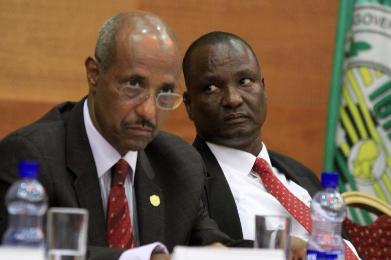S. Sudan rebels admit to killing civilians following human rights report
March 2, 2014 (ADDIS ABABA) – Following a report by Human Rights Watch, which accused both rebel and government armed forces in the South Sudanese conflict of committing serious abuses during recent fighting, anti-government forces have admitted that civilians have been killed in the areas under their control.

He said that if any of individuals from the SPLM/A-in-Opposition were implicated in war crimes then they “shall face the law”.
However, Gai, the former Governor of South Sudan’s Unity state, said that it was not possible to compare the number of civilians killed in rebel-controlled areas to the “numbers killed in Juba” at the start of the conflict.
On December 15 fighting broke out between members of the Presidential Guard in the capital following weeks of tension within the ruling SPLM.
In the days that followed soldiers members of the army and security services targetted people from the Nuer ethnic group, the tribe of Riek Machar the former Vice President, who the government accuses of attempting to overthrow President Salva Kiir.
Human Rights Watch’s researchers, who spent over two weeks in some of the worst affected areas, found that “armed forces from both sides have extensively looted and destroyed civilian property, including desperately needed aid facilities, targeted civilians, and carried out extrajudicial executions, often based on ethnicity.”
Daniel Bekele, the group’s Africa director, said in a statement that “the wanton destruction and violence against civilians” in the South Sudan, which seceded from Sudan in 2011 following decades of civil war, is “shocking”.
“Both sides need to stop their forces from committing abuses and hold those who have responsible for their actions, and the African Union (AU) should accelerate its long promised investigations.”
Gai responded to this recommendation by saying that the rebels shall cooperate with United Nations Mission in South Sudan (UNMISS) and other agencies “to investigate these violations and those found guilty must face the law.”
The senior rebel official claimed that the “killing of Nuer civilians in Juba was ordered by Salva Kiir himself when he appeared in military uniform on national TV on December 16, 2013 and declared his loyalists must crush all Nuers and Riek Machar associates.”
So far the highest estimated for the numbers killed has been from International Crisis Group, who put the figure at 10,000 some weeks ago but Gai said that number of people killed in Juba alone exceeded this estimate.
The government says that 100 soldiers and members of the security services have been arrested for the attacks on civilians in the capital, which predicated defections from army in Jonglei, Unity and Upper Nile states.
Machar, denies attempting to stage a coup but has assumed control of the mutineers and armed Nuer civilians known as the White Army to form the SPLM-in-Opposition, which negotiated a ceasefire deal signed at the end of January that has been broken by both sides.
The report accuses the rebels of looting civilian properties including humanitarian aid in Bentiu and Rubkona in Unity state, as well as other areas that they have held at various points during the ten-week conflict.
Gai denied the allegations and instead blamed government forces and Sudanese rebels – the Justice and Equality Movement (JEM) and the Sudan Liberation Army (SLA) – of looting and setting fire to Rubkona.
In the first weeks of the conflict the South Sudanese rebels in Unity state claimed that Sudanese rebels were using the oil-producing state’s disputed border areas as bases for fighting their decade-long war with the Khartoum government, an allegation denied by Juba.
Gai said that joint forces of the SPLA and Sudanese rebels had “looted 53 cars belonging to NGO’s, they looted banks and took civilian properties” from Leer, Machar’s place of birth in the days after the ceasefire was sign in late January.
Sudan Tribune was unable to reach the government’s delegation in Addis Ababa over the weekend for comment on the Human Rights Watch report or Gai’s allegations.
(ST)
